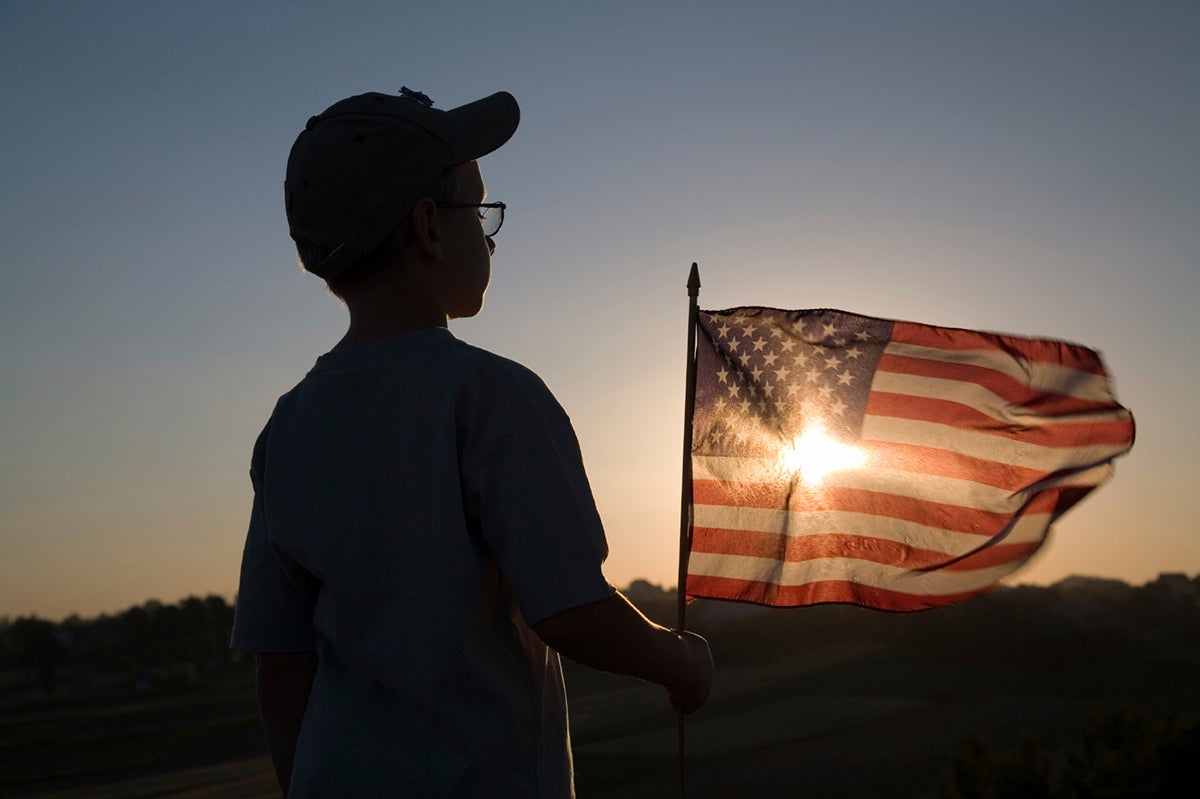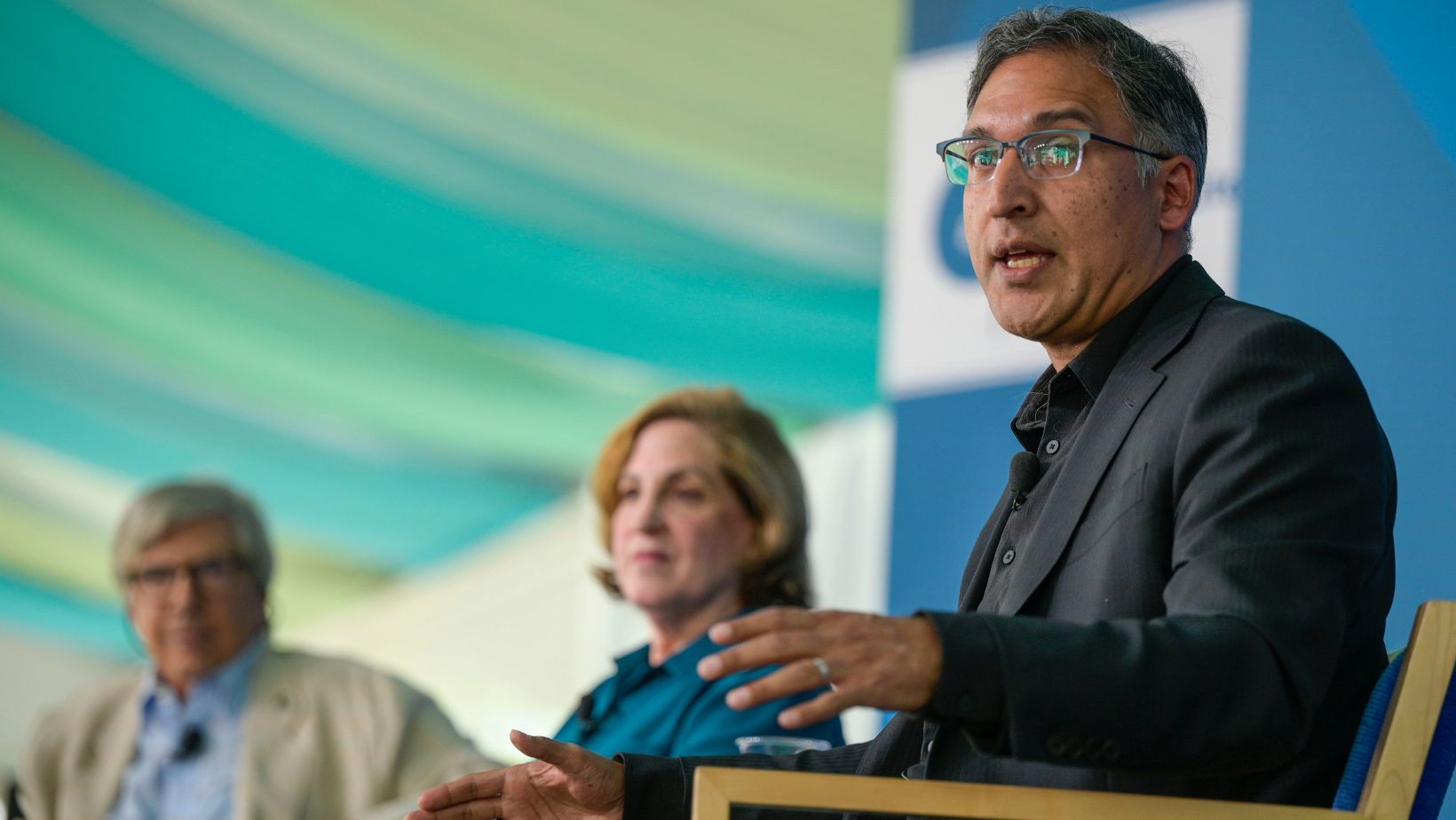
Photo Credit | iStock Photo
We don’t need to look any further than this presidential campaign season to see the fragmentation and polarization of American culture and politics. We live in an age when growing diversity, demographic flux, and social changes are pushing out the prominent American identity of the past, an identity that really only ever fit white males. Perhaps we should not be surprised by the nostalgia of so many who want to “Make America Great Again.”
Meanwhile, we are seeing unprecedented inequality because of a concentration of wealth and opportunity. Our great America seems to be “of the people, by the people, for some of the people.”
Americans, both new and old, are faced with a challenge. We must make a common culture that mirrors our new America — an America where “us” is no longer “white” by default, where the population has never been more diverse, where our role in the world is shifting rapidly.
As Eric Liu, executive director of the Citizenship and American Identity Program has said, we need a common culture “that’s greater than the sum of our increasingly diverse parts.” Our diversity should be our strength, not our fragility, but we need the binding force of common knowledge in order to bring millions of identities together to become a unified America. Failing to build this common knowledge is failing to activate our diversity, and condemning ourselves to fall short of our full potential as Americans.
Indeed, in this age of economic and civic inequality, understanding what it means to be American has never been more important. That’s why the Citizenship and American Identity Program created the initiative called What Every American Should Know. We are crowdsourcing ideas from a wide range of Americans about what we all need to know to be aware, effective, and engaged citizens.
Literacy in the culture allows us to understand what is being said, and also what is missing from the conversation. This kind of understanding grants us access to power. On the other hand, someone who is culturally and civically illiterate, intentionally or not, is isolated from power. This endeavor therefore makes it easier for those who are not culturally literate to become so, helping to close the civic opportunity gap.
The goal of our experiment is to counter pervasive fragmentation and polarization to sustain strong citizenship in America. In order to do so, we must develop a 21st century sense of cultural literacy. It must be diverse, inclusive, and it must come from all of us. So, we’re asking: What do you think every American should know in order to be culturally literate?
One of the 10 things Anne-Marie Slaughter, president and CEO of New America, told us that Americans should know about is the Korematsu dissent, which argued that excluding all Japanese-Americans into internment camps was unconstitutional. This choice is interesting not only by nature, but also because in order to learn this term, we must first be familiar with the context of World War II and Japanese-American Internment.
Along the same lines, Matt Kibbe, senior advisor of Concerned American Voters, said that one of his top 10 things Americans should know about is Edward Snowden. Therefore we should also know about the National Security Agency and the ethics of surveillance.
Of the hundreds of submissions we’ve received so far, the terms that have made the top of the aggregated list are:
- Bill of Rights
- Trail of Tears
- World War II
- Manifest Destiny
- I Have a Dream
- Gettysburg Address
- White Privilege
- Declaration of Independence
- Civil War
- Constitution of the United States
My fellow millennials often choose #BlackLivesMatter to make the top of their lists, and I would add Newtown and Flint. These top 10 terms might change. In fact, we hope that they do! This 21st century sense of cultural literacy should be an organic, ever-evolving document. As the network of contributors grows and changes, terms will move up and down on the list to mirror the priorities and values of our new America. I hope you will contribute 10 things that you think every American should know.
The full aggregated list of submissions, as well as featured lists from contributors like Anne-Marie Slaughter and Matt Kibbe, can be viewed at www.WhatEveryAmericanShouldKnow.org.
Caroline Hopper is a program associate at the Aspen Institute Citizenship and Identity Program. The opinions expressed in this piece are those of the author and may not necessarily represent the view of the Aspen Institute.

